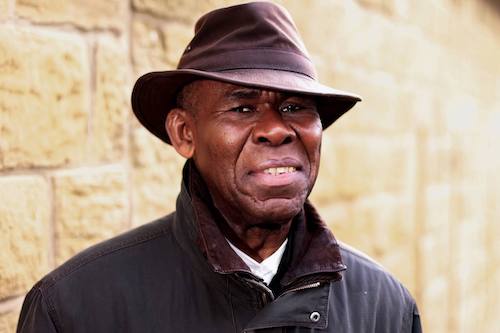Professor Gus John at 80: ‘We must call out systemic racism wherever we see it’

VETERAN EDUCATOR and anti-racism campaigner Professor Gus John has called for a revival of the Black Supplementary School Movement, warning that institutional racism in Britain’s education system continues to disadvantage Black children.
Speaking exclusively to The Voice as he marked his 80th birthday, Professor John pointed to policies such as the ‘hostile environment’ and the Windrush Scandal as evidence that systemic racism remains entrenched.
But he believes the key to empowerment lies in education.
Black supplementary schools
In the 1960s, Gus John and his colleagues launched the first Black supplementary schools in Oxford and Birmingham to counter the poor education Black children were receiving.
The initiative sparked a wider movement, with supplementary schools playing a crucial role in supporting Black students.
However the respected academic insisted that we must “revisit the origins of the Black Supplementary School Movement.”
“When I started the first such school in Oxford in 1966, we focused on building children’s self-esteem” he said. “We gave them a sense of belonging, and helped them build a positive and liberated mindset so they could cope with being berated in mainstream schools.”
John recently took part in a parliamentary discussion led by Liverpool Riverside MP Kim Johnson on the legacy of Black children being disproportionately labelled as educationally subnormal in the 1960s.
He remains adamant that the problems Black children face in the education system today are no different from those that the Black community encountered when he and others created the first Saturday schools.
“We were simultaneously teaching them about group solidarity and taking collective responsibility for one another,” he said reflecting in what those Saturday schools achieved. “In essence, we were both decolonising the curriculum and building political literacy in those young minds as many would acknowledge later in their schooling career.”
The Grenada-born academic who has spent decades on the frontline of the struggle for racial and social justice after arriving in the UK from Grenada in 1964, highlighted the solidarity and collective action that existed among Black communities in the 1960s.
“We were coming into a very hostile environment” he recalls. “The racism was very in your face—plastered all over walls and doors, all the tropes about ‘aliens’ and foreigners.
“We looked to one another for protection. If you saw the police abusing some young person on the street, you would stop and observe. We didn’t have mobile phones and couldn’t take pictures – but you could at least demonstrate that you could see what was happening even if that led to you being arrested for ‘obstructing the police.
“They were trumping up charges as if they were confetti.
“But one did have a sense of group solidarity, a sense that if they are doing that to me today, they could be doing that to you tomorrow. So it is in my interest to protest about what they are doing to you today.”
Despite a more diverse parliament, John argues that Black and minoritised communities continue to be treated as second-class citizens.
Defending Black women
He also stressed the need to safeguard and support Black women, citing recent high-profile cases such as the treatment of Child Q and Hackney and Stoke Newington MP Diane Abbott and condemned what he called a “culture of anti-Blackness” in British society.
“We, collectively, have a duty, in defence of our own freedom and in affirmation of our essential dignity, to call out misogyny, systemic racism and a culture of anti-Blackness,” he said.
John paid tribute to the countless Black mothers who have battled institutions in defence of their children.
“At a time when far too many of our children are leading challenging lives and facing death on account of the abandonment of hope and the death of aspiration, we must acknowledge that our communities would be far worse off if Black women were not performing the pivotal role in community building and defence” he said.
A call to action
As Gus John enters his ninth decade, he remains resolute in his mission to challenge inequality and inspire future generations.
“If they are doing that to me today, they could be doing that to you tomorrow. So it is in my interest to protest about what they are doing to you today.”
With calls growing for a radical rethink of education,his reflections serve as both a warning and a call to action. His message is clear: Black communities must take control of their future and that starts with the education of their children.
The full version of Professor Gus John’s interview can be found in the April edition of The Voice.
Source link
